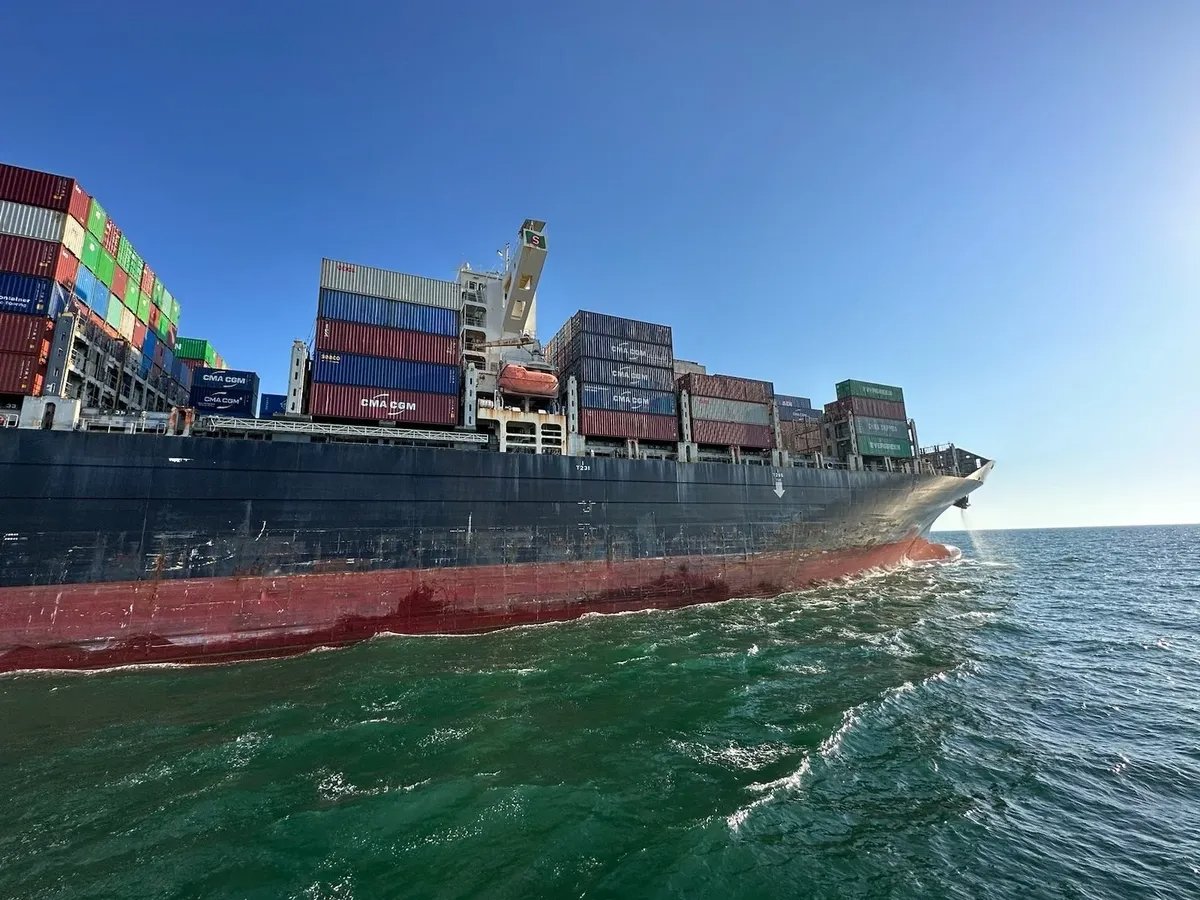The Joseph Schulte cargo ship is currently passing through Turkey’s Bosphorus Strait after leaving the Ukrainian port of Odesa, Reuters reports.
This is the first vessel that used Ukraine’s temporary corridor for ship evacuation in the Black Sea. Ukrainian Minister Oleksandr Kubrakov said that Joseph Schulte is transporting more than 30,000 tonnes of cargo, including agricultural produce.
The Hong Kong-flagged ship remained in Odesa since 23 February 2022, a day before Russia’s full-scale of Ukraine began.

Joseph Schulte. Фото: Oleksandr Kubrakov
Ukrainian President Volodymyr Zelensky said two days ago that the first civilian vessel had sailed out of Odesa and was headed towards the Bosphorus. “Ukraine has just taken an important step towards the resumption of freedom of navigation in the Black Sea,” he said.
Zelensky stressed that Ukraine earlier notified that the International Maritime Organization about the corridor’s operation.
On 13 August, the Russian Defence Ministry said that a Russian patrol vessel fired warning shots to force Palau-flagged Sukru Okan, which was heading to the Ukrainian port of Izmail, to agree to an inspection. Once the ship was searched, it continued heading towards Ukraine.
Senior Ukrainian official Mykhailo Podolyak slammed the incident as “an act of piracy” by Russia. Turkey urged Russia from any actions that can contribute to escalation in the Black Sea region.
On 17 July, Russia terminated the grain deal and disbanded the joint coordination centre in Istanbul. The Russian Foreign Ministry added that Moscow would revoke safety guarantees for ships, shut down the humanitarian sea corridor, and reinstate the regime of temporarily dangerous area in the north-western waters of the Black Sea.
The Wall Street Journal previously reported, citing officials, that the US was engaged in talks with Turkey, Ukraine, and its neighbours on opening up alternative routes for Ukrainian grain exports without Russia’s involvement. The plan envisions that four million tonnes of Ukrainian grain will be exported via the Danube by October.
